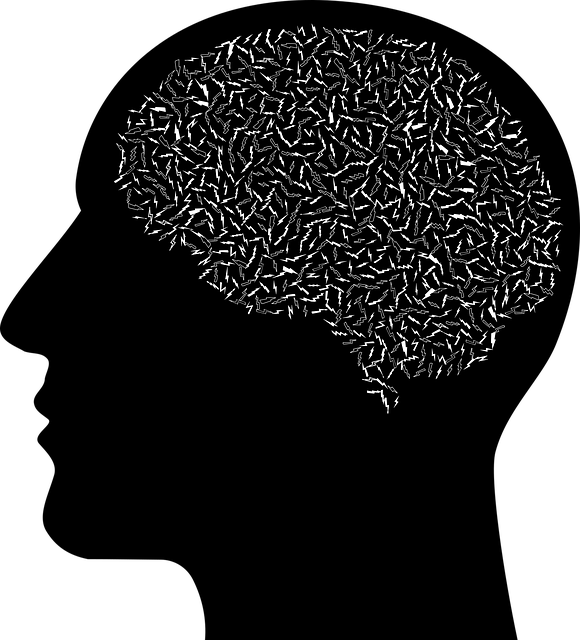Crisis Intervention Teams (CITs) are specialized groups offering crucial support to vulnerable individuals during crises, especially those from marginalized communities like polyamorous or open relationships, and elders facing cognitive decline. Consisting of professionals from diverse backgrounds, CITs use evidence-based strategies for de-escalation and crisis management. Training equips participants with tools for compassion cultivation, self-esteem improvement, and emotional resilience to prevent burnout. Tailored approaches are needed for elderly individuals in crisis situations, addressing physical, cognitive, and emotional changes. For polyamorous or open relationships, CITs should focus on complex communication dynamics and encourage open dialogue through mental wellness journaling. Effective training programs integrate holistic strategies, stress management techniques, and self-care routines to maintain responder mental health. Fostering empathy and cultural competence ensures inclusive practices, bridging gaps between intervention services and underrepresented communities like elders and polyamorous individuals.
Crisis intervention teams (CITs) play a crucial role in supporting vulnerable populations during mental health crises. This article explores the vital resource that CITs represent, focusing on three key areas: understanding team dynamics, addressing unique needs among elderly individuals, and navigating crises in polyamorous and open relationships. We delve into effective training programs, emphasizing essential components and techniques, while highlighting the importance of fostering empathy and cultural competence for inclusive practices in crisis intervention, including therapy for elders and non-traditional relationships.
- Understanding Crisis Intervention Teams: A Vital Resource for Vulnerable Populations
- The Unique Needs of Elderly Individuals in Crisis: Age-Specific Considerations
- Polyamorous and Open Relationships: Navigating Mental Health Crises Differently
- Training Programs for Effective Support: Essential Components and Techniques
- Fostering Empathy and Cultural Competence: Inclusive Practices in Crisis Intervention
Understanding Crisis Intervention Teams: A Vital Resource for Vulnerable Populations

Crisis Intervention Teams (CITs) are a vital resource for vulnerable populations, offering immediate and specialized support during moments of crisis. These teams typically include trained professionals from various disciplines, such as mental health experts, social workers, and law enforcement officers, who collaborate to de-escalate situations and provide effective interventions. By integrating diverse perspectives and skills, CITs can address the complex needs of individuals facing crises, including those from marginalized communities like polyamorous and open relationships, and elders experiencing isolation or cognitive decline.
CIT training programs equip participants with evidence-based strategies for managing high-stress scenarios, fostering compassion cultivation practices, and enhancing self-esteem improvement techniques. This specialized training not only equips professionals to handle crises more effectively but also promotes burnout prevention by providing them with tools to maintain emotional resilience. By prioritizing the well-being of both the crisis interveners and those they serve, CITs ensure that support is delivered with empathy, understanding, and cultural sensitivity, ultimately contributing to positive outcomes for vulnerable populations.
The Unique Needs of Elderly Individuals in Crisis: Age-Specific Considerations

Elderly individuals often present unique challenges and needs during crisis situations, requiring specialized approaches in crisis intervention training. As people age, they may experience various physical, cognitive, and emotional changes that can influence their responses to stressful events. For instance, elderly folks might have reduced mobility or sensory impairments, which can impact their ability to communicate during a crisis. Additionally, many elders carry intergenerational trauma or have experienced significant life changes, such as the loss of loved ones or retirement, affecting their mental wellness and coping mechanisms.
Crisis intervention teams should be equipped with knowledge about the specific needs of the elderly population. This includes understanding age-related mental health issues like depression and cognitive decline. Given the rise in polyamorous and open relationships among older adults, training should also address the unique dynamics and potential challenges these relationships may present during a crisis. Incorporating mental wellness journaling exercises and self-awareness activities can help elders express their feelings and thoughts, fostering better communication with interventionists. Moreover, integrating community outreach program implementations that cater to the elderly can provide much-needed support networks and resources tailored to their unique circumstances.
Polyamorous and Open Relationships: Navigating Mental Health Crises Differently

In the context of crisis intervention team training, understanding and addressing mental health crises within polyamorous and open relationships requires a nuanced approach. Unlike traditional monogamous dynamics, these relationships often involve complex communication, trust, and boundary-setting—factors that can significantly impact how individuals navigate mental health challenges. For instance, therapy for elders in polyamorous families might focus on managing jealousy, insecurity, or the unique stressors associated with non-traditional family structures.
Crisis intervention guidance tailored to this demographic should recognize the potential benefits of open communication and collaborative problem-solving. Mental wellness journaling exercise guidance can be particularly effective, encouraging individuals within these relationships to express their feelings, fears, and hopes in a safe space. Furthermore, mental illness stigma reduction efforts are crucial in fostering supportive environments where polyamorous and open-relationship individuals feel comfortable seeking help during crises without fear of judgment or misunderstanding.
Training Programs for Effective Support: Essential Components and Techniques

Effective crisis intervention team training programs are pivotal in equipping professionals to support individuals facing diverse challenges, including those navigating complex personal relationships like polyamorous and open relationships. These programs must encompass a multifaceted approach to therapy, recognizing that each individual’s needs are unique. By integrating techniques tailored for older adults as well, the interventions become more inclusive and impactful.
Beyond addressing immediate crises, training should emphasize holistic strategies for burnout prevention, self-care routine development, and depression prevention. Equipping crisis responders with tools to maintain their mental health is crucial, ensuring they can provide sustained and compassionate support. This includes techniques for stress management, emotional regulation, and cultivating resilience, all of which contribute to both personal well-being and enhanced capacity to assist others effectively.
Fostering Empathy and Cultural Competence: Inclusive Practices in Crisis Intervention

In crisis intervention training programs, fostering empathy and cultural competence is paramount, especially when addressing diverse communities including those with non-traditional relationships like polyamorous and open relationships. Instructors should model and encourage emotional intelligence, allowing participants to recognize and validate the unique emotional experiences of individuals facing crises. This involves understanding and appreciating different cultural backgrounds, values, and communication styles. For example, stress management workshops within these programs can be tailored to accommodate diverse needs, ensuring effective coping strategies for all participants.
Community outreach program implementation is another key aspect, aiming to bridge gaps between intervention services and underrepresented communities. By actively engaging with groups such as the polyamorous and elders, training programs can develop inclusive practices that reflect the evolving social landscape. This approach not only enhances the effectiveness of crisis interventions but also fosters a sense of belonging and trust, which are essential for effective therapy and support.
Crisis intervention team training equips professionals with the tools to support diverse populations, from elderly individuals to those in polyamorous relationships. By understanding age-specific considerations and adopting inclusive practices that foster empathy and cultural competence, we can ensure effective crisis support. Effective training programs equip teams with essential components and techniques, revolutionizing how we address mental health crises. Ultimately, these initiatives are vital for enhancing services and improving outcomes for vulnerable populations, including older adults and those in non-traditional relationships, such as polyamorous ones, ensuring therapy tailored to their unique needs.










